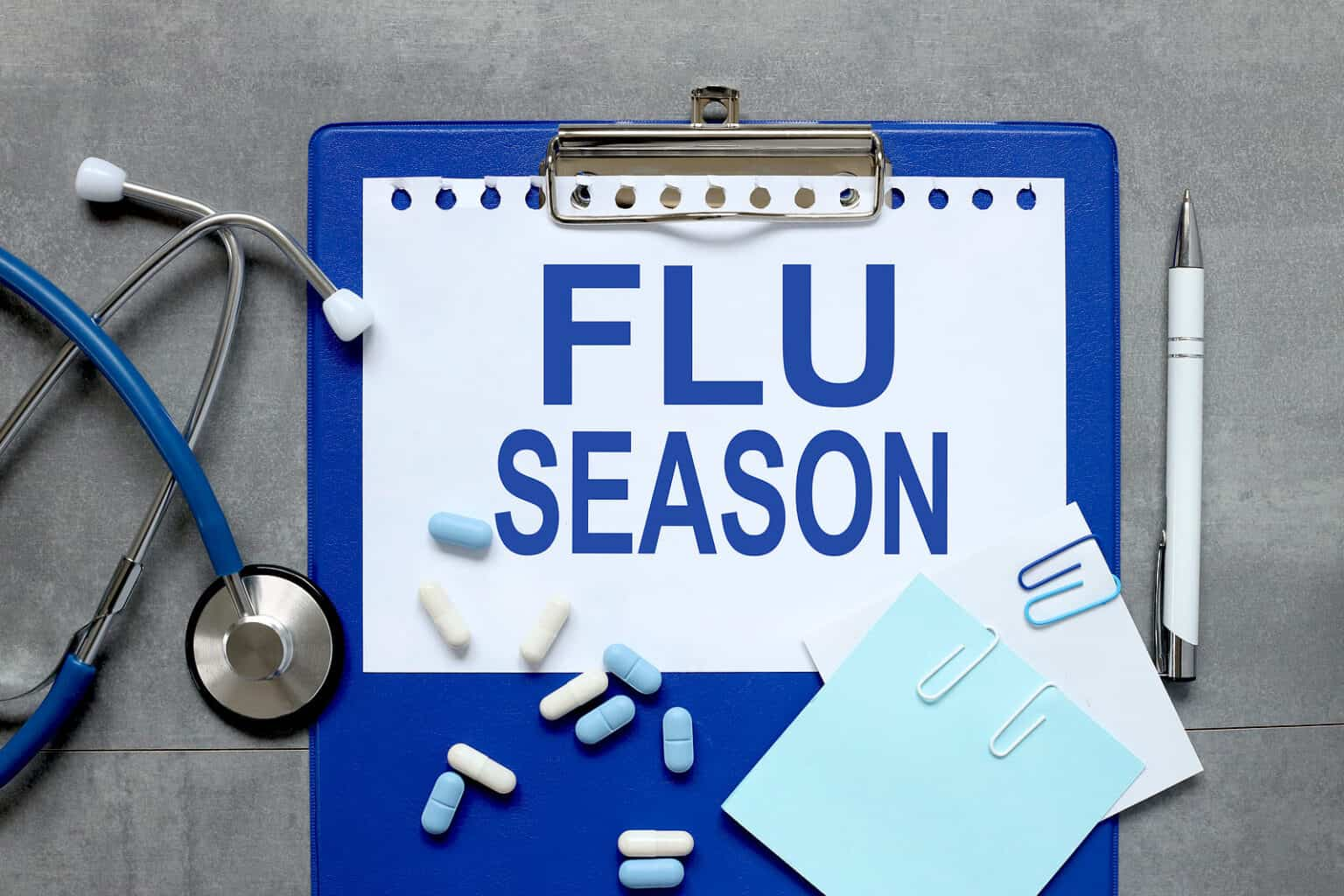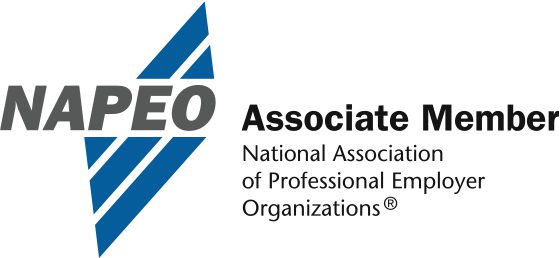Guest blog provided by One Medical
Flu season is quickly approaching and with it, many questions and concerns about its interaction with COVID-19. As the pandemic continues, U.S. health officials fear the overlap of the two viruses could further worsen public health and strain healthcare systems. Thankfully, there are ways you can protect both yourself and others this fall. Here’s what you need to know to prepare for flu season:
What is the flu?
The flu is a highly contagious respiratory virus that comes on suddenly. Symptoms, such as body aches, fever, and a cough, typically develop one to four days after exposure, and can last from a few days to two weeks. Having the flu may include any or all of the following symptoms:
- Fever (usually 100.4°F or higher, lasting for several days), often with chills
- Body aches or muscle aches
- Headaches
- Fatigue
- Sore throat
- Runny or stuffy nose
- Cough
- Eye pain, such as burning, pain on eye movement or sensitivity to light

The good news is that gastrointestinal symptoms, such as diarrhea or nausea and vomiting, are fairly uncommon. And because the flu is caused by a virus, antibiotics that are effective against bacteria aren’t useful when you have the flu.
How do you get the flu?
The flu is spread person-to-person primarily from droplets that can travel through the air from coughing and sneezing, as well as by physical contact with contaminated surfaces like door handles, countertops or anything else an infected person touched recently. So practice your cough and sneeze technique and good hand hygiene to keep yourself and those around you healthy during flu season. Widespread mask use and practicing good social distancing will also dramatically reduce the spread of the flu.
Should I get a flu shot?
Yes! At One Medical, we encourage all our patients who are eligible to get vaccinated against the flu. It’s the single best way to protect yourself and your loved ones from getting the flu. In fact, the flu shot not only reduces your risk of getting the flu and lessens symptoms if you do get sick, it also helps prevent the flu from spreading. If you are in close contact with young children, anyone elderly or with a serious illness, getting vaccinated can reduce their chances of coming down with the flu and developing complications like pneumonia.
Moreover, the flu shot is especially important for infants and children, anyone pregnant (or planning to become pregnant), those over the age of 50, those with a chronic medical condition, and those caring for someone who is at risk for complications of the flu. These special groups are at high risk of serious complications of flu, like hospitalization, pneumonia and even death.
Do I need a flu shot every year?
Yes, it’s recommended. Each year, the flu vaccine is updated to better match the strain(s) of flu expected to cause the majority of flu cases during the upcoming flu season. Because flu viruses can mutate from season to season, it’s important to get a flu shot every year to ensure you and your loved ones are protected. While it’s possible immunity from a prior year’s shot can be protective, One Medical stands with other bodies such as the Centers for Disease Control and World Health Organization in recommending annual flu vaccination for everyone 6 months and older.
When is the best time to get a flu shot?
The ideal time to get the flu shot is before the season starts, so we recommend getting vaccinated in September or October, once the current season’s vaccine becomes available. Because flu season in the U.S. can last as late as May though, it’s still worth getting vaccinated even after October. Also, it can take up to two weeks after vaccination for antibodies to develop and protect you against the flu, so keep that in mind when planning to get vaccinated.
Are flu vaccines safe?
Yes, very! Flu vaccines have been studied carefully and are very safe. Even though some people get sick despite getting a flu shot, the flu shot itself can’t give you the flu. Some people report symptoms such as body aches and low-grade fevers after getting a flu shot. This is due to your body’s developing a healthy immune response to the vaccine. These symptoms usually resolve within 24-48 hours.
There has been an association between the flu shot and a serious complication called Guillain-Barre Syndrome (GBS), but this is extremely rare – fewer than 1 or 2 people per million who receive the vaccine will develop this syndrome, and the vaccine has been shown over and over to be safe and effective. If you have concerns about the vaccine’s safety, you can read more from the CDC here. Talk to your provider if you’ve had a bad reaction to a vaccine in the past before receiving your next flu shot.
Can the flu shot make me sick?
A common myth that has been hard to shake is the belief that the flu shot can cause the flu. This is not true. You definitely can’t get the flu from a flu shot because there are no active strains of the flu (viral particles) in the shot. You can, however, develop mild flu-like symptoms such as body aches, feeling tired, and a low grade fever, but this isn’t the flu. The flu is much worse! Instead, this is your body creating an immune response to help you fight off any future exposure to the flu, and these symptoms usually go away in a day or two.
Do I still need the flu shot if I never get the flu?
If you never get the flu, that’s great! But the flu shot not only protects your health, but it protects those around you as well. If you are around older, frail people, very young people, like babies, or people with chronic illnesses, the flu shot can help you prevent them from getting it too, as they are at risk to get very sick or even die from the flu.
How is the flu different from COVID-19?
This flu season is particularly complicated because the U.S. is still fighting to control the spread of COVID-19. Both the flu and COVID-19 are contagious respiratory illnesses, but are caused by different viruses. COVID-19 is caused by the novel coronavirus SARS-CoV-2, while the flu is caused by various strains of influenza viruses. As both viruses cause many of the same symptoms and are transmitted via close personal contact and through respiratory particles, it can be difficult to distinguish one from the other. There are a few differences though.
First, with COVID-19, symptoms typically tend to appear two to fourteen days after exposure, whereas with the flu, symptoms usually develop one to four days after exposure. Additionally, COVID-19 is believed to be more contagious than the flu and involved in more “super-spreading events” where one person infects many others Likewise, people with COVID-19 may be contagious for longer than those with the flu.
The symptoms of COVID and flu largely overlap except you may experience loss of taste or smell with COVID, but the rest of the symptoms are often indistinguishable without a test. The flu may also be treated with antiviral drugs for people at high risk for harm from the flu. Similarly, there are injectable medications that can help reduce the risk of COVID upon diagnosis or after an exposure for individuals who are at high risk for complications from the disease. Read more about the similarities and differences between the flu and COVID-19 here.
Is COVID-19 more dangerous than the flu?
Flu and COVID-19 can both cause serious illness and complications that may result in hospitalization and death. While current data suggests COVID-19 to be more deadly than the seasonal flu, our understanding of this comparison is constantly evolving, especially with the emergence of the Delta variant. The death rate for COVID-19 varies by location, age, and the presence of underlying health conditions. It’s hard for scientists and public health officials to arrive at one singular mortality rate, given the number of people who have contracted the virus is still largely unknown. As both the flu and COVID-19 can be fatal, we should all do our part to help reduce transmission of both viruses to help protect the most vulnerable and to prevent overwhelming our healthcare system.
Can I have flu and COVID-19 at the same time?
As the flu and COVID-19 are caused by different viruses, it’s possible to have both respiratory illnesses at the same time. Public health officials are still trying to understand how common this is. Given the possibility of coinfection, it’s especially important to get a flu shot this year to better protect you and your loved ones.
How can I protect myself from the flu and COVID-19?
The best way to protect yourself and others against both flu and COVID-19 is to get vaccinated. Multiple vaccines are produced each year to protect against the flu, while three COVID-19 vaccines have been authorized for emergency use by the FDA. These vaccines not only reduce your risk of getting the flu or COVID-19 and lessen the severity of illness if you do get sick, but they also help prevent both viruses from spreading. Getting vaccinated can also protect those around you, particularly those at increased risk for severe illness.
In addition to vaccination, many of the same health and safety precautions we’ve taken over the last year to prevent the spread of COVID-19 also help prevent the flu. The CDC recommends the following to reduce your risk of both flu and COVID-19 infection:
- Wash your hands often with soap and water for at least 20 seconds, especially after going into public or touching common surfaces. If soap and water aren’t available, use an alcohol-based hand sanitizer.
- Avoid touching your eyes, nose, and mouth with unwashed hands.
- Avoid close contact with people who are sick. Close contact is considered spending more than a few minutes within 6 feet of a sick person, or sharing common surfaces or utensils.
- Cover your cough or sneeze with a tissue, then throw the tissue in the trash.
- Stay home when you are sick
- Regularly clean and disinfect frequently touched objects and surfaces.
For COVID-19 specifically, the CDC also recommends practicing social distancing and wearing a face mask when sick and in certain public settings depending on your vaccination status and the level of COVID-19 transmission in your area. While these precautions would not typically be advised during a normal flu season, doing so to prevent COVID-19 will also help reduce your risk of catching the flu this year. Learn more about when to wear a face mask here.
Do I need to get both vaccines or can one protect me against the other?
The flu vaccine isn’t designed isn’t known to protect against COVID-19 directly. Likewise,the COVID-19 vaccines do not protect against the flu. The best way to protect yourself from both illnesses is to receive both vaccines. Learn more about COVID-19 vaccines here.
Can I get a flu shot and a COVID-19 vaccine at the same time?
Yes, it is safe to get the COVID-19 vaccine and other vaccines, including the flu shot, in the same visit. This is true, no matter whether you are receiving your first, second, or third dose of the COVID-19 vaccine. According to the CDC, “experience with other vaccines has shown that the way our bodies develop protection, known as an immune response, after getting vaccinated and possible side effects of vaccines are generally the same when given alone or with other vaccines.”
What should I do if I have flu or COVID-19 symptoms?
Because it is often difficult to distinguish COVID-19 from the flu, the best way to determine your course of care is to get tested. We recommend that anyone who is experiencing the symptoms above isolate until the following, regardless of vaccination status:
- At least 10 days have passed since their symptoms first appeared AND
- They have had no fever for at least 24 hours without the use of fever-reducing medication AND
- Other respiratory symptoms have improved
Read our guide on how to self-isolate.
As for flu, several prescription antiviral drugs have been approved by the FDA. Most people with the flu have mild illness and do not need medical care or antiviral drugs. In most cases you should stay home and avoid contact with other people except to get medical care. We recommend staying hydrated and taking a fever-reducing medicine like ibuprofen or acetaminophen (Tylenol) as needed.
An antihistamine like Zyrtec or Claritin may help reduce your congestion regardless of whether it’s caused by a virus or allergies. For the seasonal flu, Tamiflu (oseltamivir) may be helpful for individuals at high risk of complications from the flu, but needs to be started soon after symptoms begin. It also causes fairly frequent side effects, so isn’t the best choice for everyone. Rest and hydration are the most important things to remember as you work on getting well.
Should I take an antiviral medication like Tamiflu?
Antiviral medications are not needed for most people, but can be helpful for people who are at high risk of complications of the flu. If taken during the first 48 hours of the illness, antiviral medications such as the oral drug oseltamivir (Tamiflu) or the inhaled drug zanamivir (Relenza) can lessen the severity and shorten the duration of your symptoms. However, if taken longer than 48 hours after the onset of symptoms, they have little effect. Some side effects of these medications include nausea, diarrhea, and headache. As such, for most people we don’t routinely recommend antiviral medication.

Those who are very sick with the flu (like people whose illness is so severe they need to be hospitalized) and those who are at risk of developing serious flu complications (either due to age, pregnancy, or because of a high-risk medical condition) are recommended to take antiviral medication. If you’re unsure if you are recommended to take antiviral medication, or you have additional questions, please contact a member of your care team.
*Aspen HR is not providing medical advice through this blog and encourages anyone experiencing flu or COVID-like symptoms to consult their medical professional.







